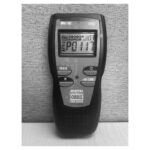For the home mechanic tackling car troubles in their garage, an OBD scanner is no longer a luxury – it’s an essential tool. Modern vehicles rely heavily on their onboard computer systems, and when something goes wrong, these systems generate fault codes. An OBD scanner allows you to read these codes, providing a crucial first step in diagnosing and fixing the problem yourself. But with a market flooded with options, Which Obd Scanner Is Best For A Home Mechanic?
Understanding OBD Scanners
What is an OBD Scanner?
An OBD (On-Board Diagnostics) scanner is a device that plugs into your car’s OBD port – a standardized socket found in most vehicles. This port, often located under the dashboard, provides access to your car’s computer. OBD scanners range from basic, handheld units to more sophisticated, app-based devices. Regardless of complexity, their fundamental purpose is to communicate with your vehicle’s computer to retrieve diagnostic information.
How OBD Works
Since 2001 for petrol cars and 2004 for diesel models, all cars sold in Europe have been fitted with this standardized OBD port (EOBD in Europe, OBD2 elsewhere). This 16-pin socket not only allows data communication but also provides power to the scanner, eliminating the need for batteries or external power sources. When a fault occurs, the car’s computer stores a diagnostic trouble code (DTC). The OBD scanner reads these codes, translating them into descriptions of potential issues – like a misfiring cylinder or a faulty sensor.
Why Home Mechanics Need One
The primary benefit of owning an OBD scanner is the ability to quickly diagnose car problems at home. Instead of an immediate and potentially costly trip to a professional garage just to identify a fault code, a home mechanic can use an OBD scanner to get instant insights. Considering that garage labor rates can be significant, the cost of even a basic OBD scanner can be recovered after just one or two uses. By identifying the fault code yourself, you can then use resources like Haynes AutoFix to understand the issue, find repair guides, and confidently tackle the repair in your own garage, saving both time and money.
Choosing the Right OBD Scanner for Home Mechanics
For most home mechanics, a basic OBD scanner will suffice. These affordable devices typically offer the core functions needed for DIY diagnostics:
- Read Fault Codes: Identify the Diagnostic Trouble Codes (DTCs) causing the check engine light or other warning lights.
- Clear Fault Codes: Turn off the check engine light after a repair is completed.
- Communicate with the Vehicle: Establish a reliable connection to your car’s computer system.
While advanced scanners offer features like live data streaming, component testing, and deeper system diagnostics, these are often unnecessary for typical home repairs. For the DIY enthusiast, starting with a user-friendly and budget-friendly OBD scanner is a smart move. This allows you to gain experience with car diagnostics and determine if more advanced features are needed in the future. Pairing your OBD scanner with a comprehensive repair resource like Haynes AutoFix provides the perfect combination for successful home car maintenance and repair.


